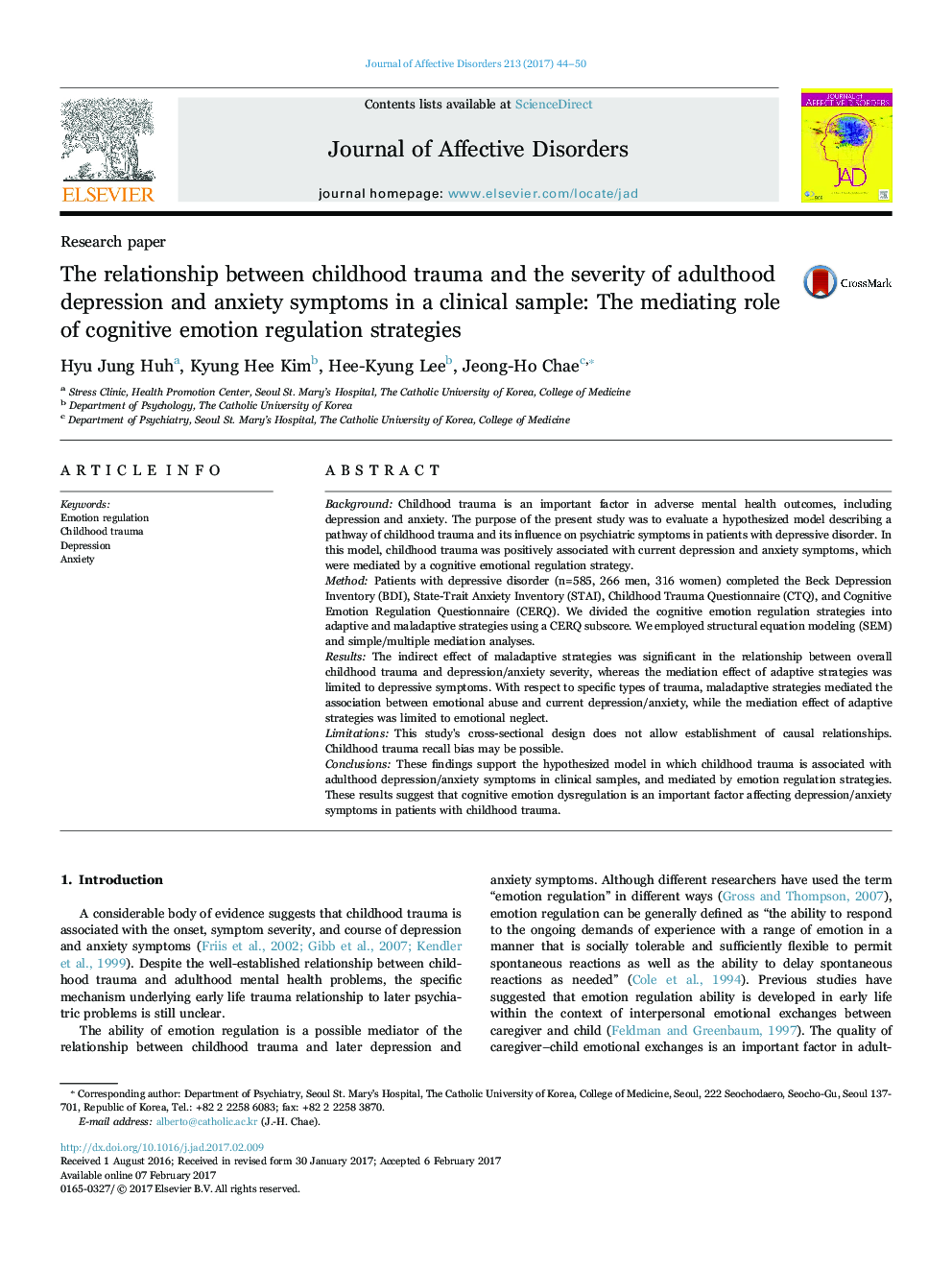| کد مقاله | کد نشریه | سال انتشار | مقاله انگلیسی | نسخه تمام متن |
|---|---|---|---|---|
| 5722226 | 1608112 | 2017 | 7 صفحه PDF | دانلود رایگان |
- Childhood trauma is related with current symptoms severity of depression and anxiety.
- Maladaptive emotion regulation is a mediator of early trauma and adulthood symptoms.
- Emotion dysregulation may be an important factor for depression with childhood trauma.
BackgroundChildhood trauma is an important factor in adverse mental health outcomes, including depression and anxiety. The purpose of the present study was to evaluate a hypothesized model describing a pathway of childhood trauma and its influence on psychiatric symptoms in patients with depressive disorder. In this model, childhood trauma was positively associated with current depression and anxiety symptoms, which were mediated by a cognitive emotional regulation strategy.MethodPatients with depressive disorder (n=585, 266 men, 316 women) completed the Beck Depression Inventory (BDI), State-Trait Anxiety Inventory (STAI), Childhood Trauma Questionnaire (CTQ), and Cognitive Emotion Regulation Questionnaire (CERQ). We divided the cognitive emotion regulation strategies into adaptive and maladaptive strategies using a CERQ subscore. We employed structural equation modeling (SEM) and simple/multiple mediation analyses.ResultsThe indirect effect of maladaptive strategies was significant in the relationship between overall childhood trauma and depression/anxiety severity, whereas the mediation effect of adaptive strategies was limited to depressive symptoms. With respect to specific types of trauma, maladaptive strategies mediated the association between emotional abuse and current depression/anxiety, while the mediation effect of adaptive strategies was limited to emotional neglect.LimitationsThis study's cross-sectional design does not allow establishment of causal relationships. Childhood trauma recall bias may be possible.ConclusionsThese findings support the hypothesized model in which childhood trauma is associated with adulthood depression/anxiety symptoms in clinical samples, and mediated by emotion regulation strategies. These results suggest that cognitive emotion dysregulation is an important factor affecting depression/anxiety symptoms in patients with childhood trauma.
Journal: Journal of Affective Disorders - Volume 213, 15 April 2017, Pages 44-50
